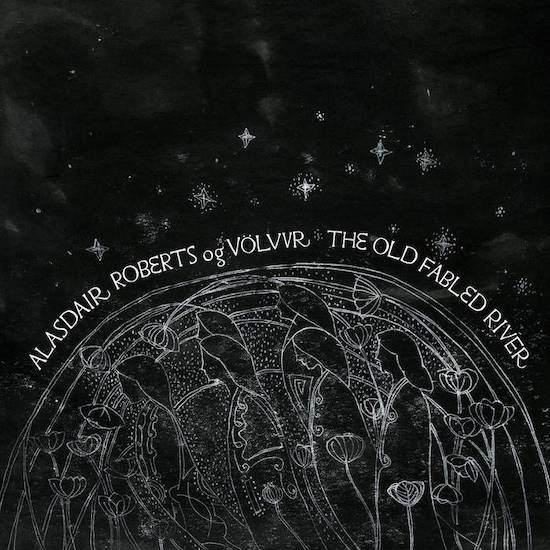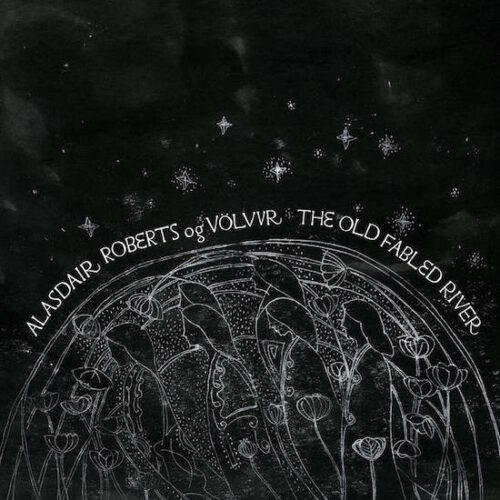The Old Fabled River opens with a cinematic swell of fiddle and percussion, a calling card for its collaborators: modern Scottish bard, Alasdair Roberts and Scandanavian folk collective, Völvur (‘The Seeresses’, in English). Recorded in London in January 2020, an impossibly long time ago, the album is the latest in a growing set of recordings Roberts has shared with musicians singing in languages other than English. Urstan (2012) was recorded with Gaelic singer Mairi Morrison, and Au Cube (2018) with French band Tartine de Clous. All three records split their tracks between languages, but on each the sensibilities of musicians from different nations cohere beautifully. On The Old Fabled River, Roberts sings a combination of traditional songs and newly written tracks, while Völvur contribute traditional Norwegian tracks sung by Marthe Lea.
The two tracks in Norwegian are hymns depicting the rising and setting of the sun, set to traditional tunes. ‘Nu rinner solen opp’ is a tone poem with complex instrumentation that sounds like a forest coming to life. ‘Nu solen går ned’ has double bass, clarinet, and darkened drums. Lea’s low, clear voice enfolds us, and pulls us into a landscape. Roberts sings two traditional songs as well: ‘Sweet William’s Ghost’ and ‘Song Composed in August’ by Robert Burns, which features only the entwined, unaccompanied voices of Roberts, Lea, and Fredrik Rasten.
The album’s centrepiece is ‘The Green Chapel’, an archetypal Alasdair Roberts song. It concerns the Celtic concept that music is woven from “three noble strains”: geantraí (‘joy’), goltraí (‘lamentation’) and suantraí (‘sleep’). It also brings to mind the green chapel of Arthurian legend, where Gawain meets the Green Knight, an enchanted, ambiguous place where he is put to the ultimate test. It’s a highly allusive song and an instant Roberts classic, given extra texture and beauty by the multi-layered, conversational accompaniment. The three other new songs are equally masterful with ‘The Tender Hour’, a plangent song about love and death, ‘Orison of Union’, which is madrigal-esque, and ‘Hymn of Welcome’, in which Roberts sings about the passing of the flame from one at the start of life from one at the end, “who bears it with a palsied hand to light some tiny wick that’s there been kindled.”
We have come to expect an extraordinary level of literacy and cultural engagement from Alasdair Roberts’ writing, and it’s easy to forget just how unusual this is. The man has a powerful gift for communication through music, which is all the more joyous when shared, particularly with such a masterfully subtle band as Völvur. Absolutely no-one else writes songs like this, and relatively few are open to the collaborations he consistently undertakes. The Old Fabled River is an exceptional record, a powerful example of a living folk music based on exchanging stories and remaking cultures in the process.



